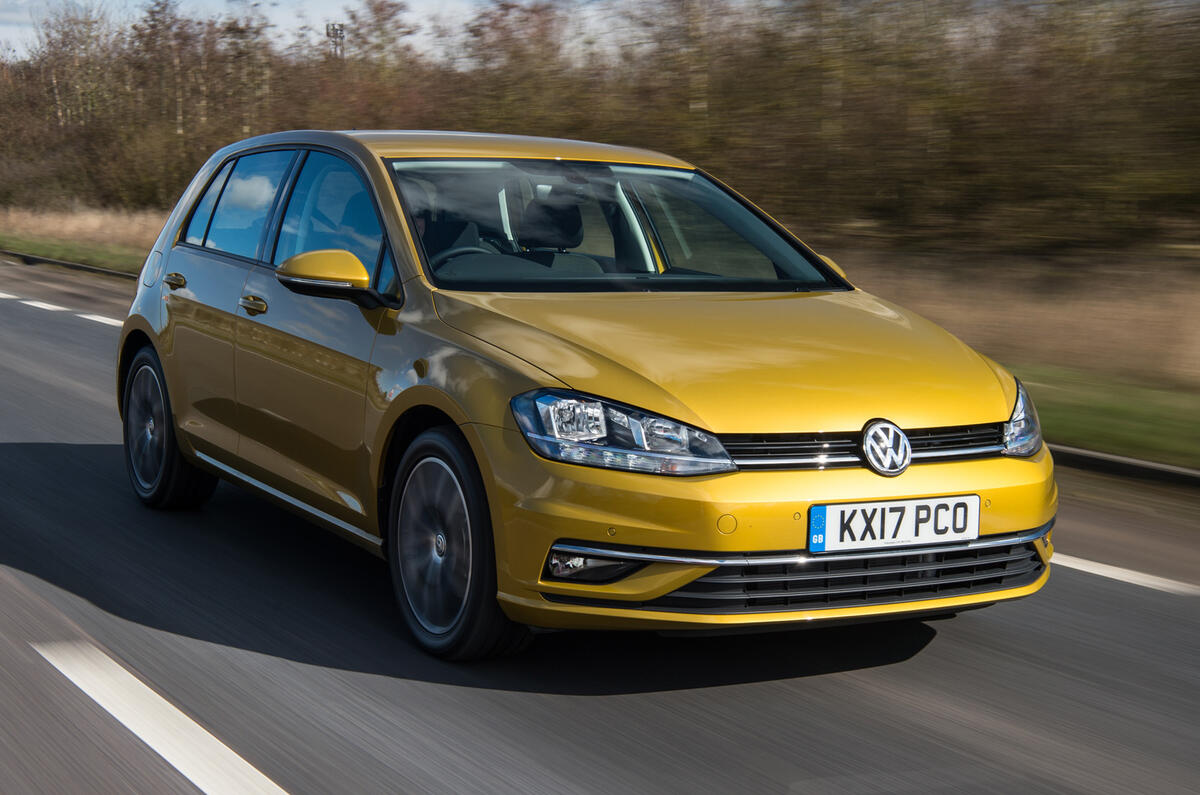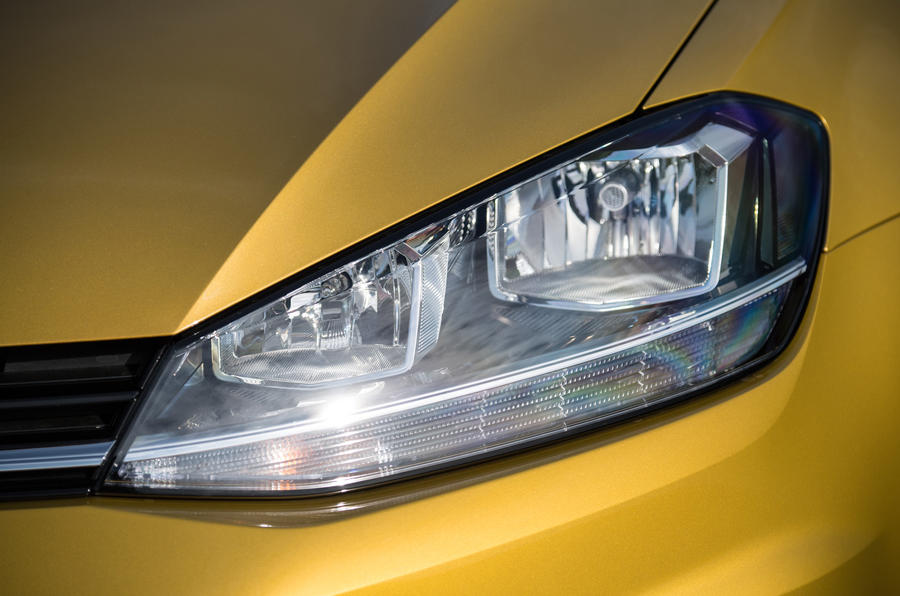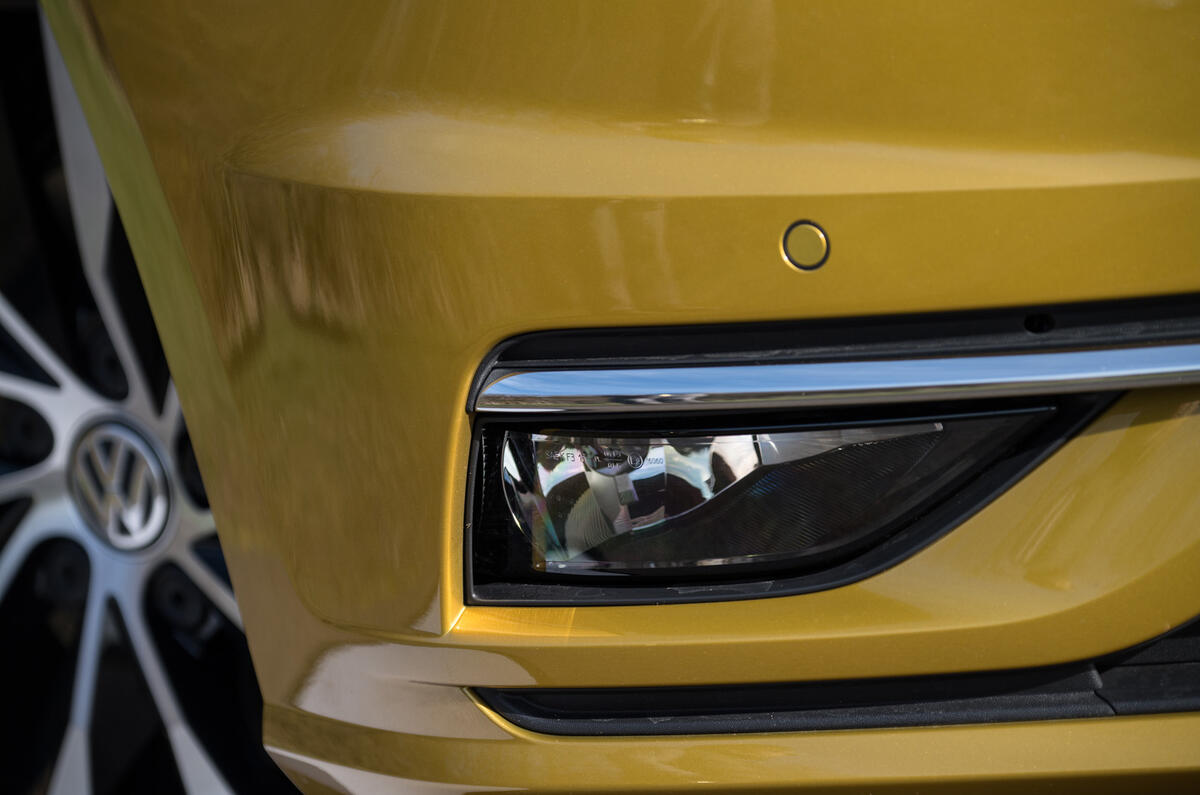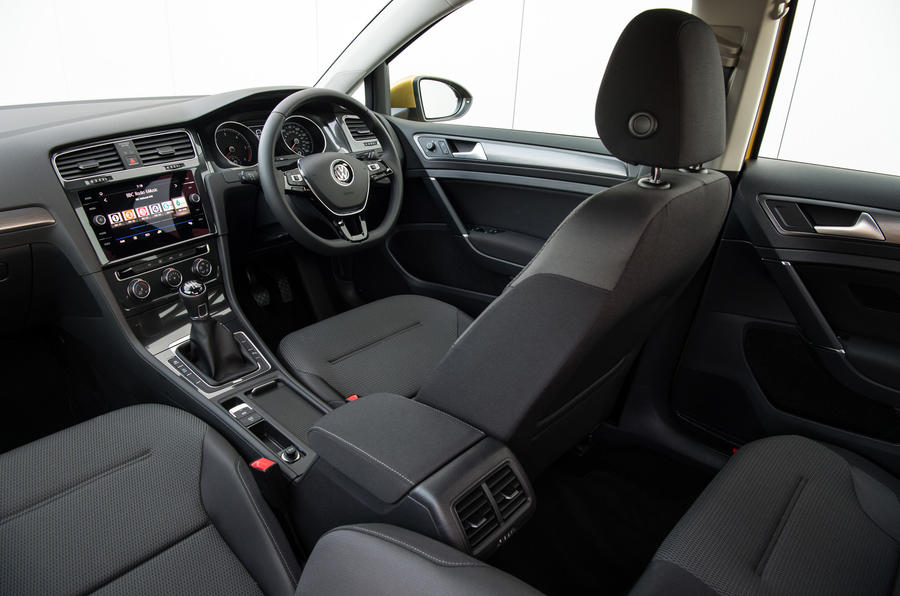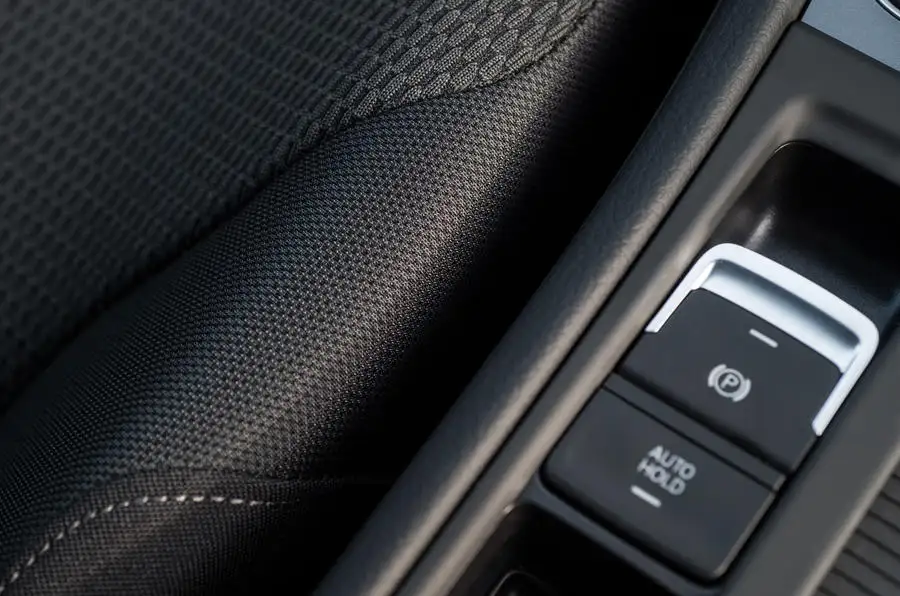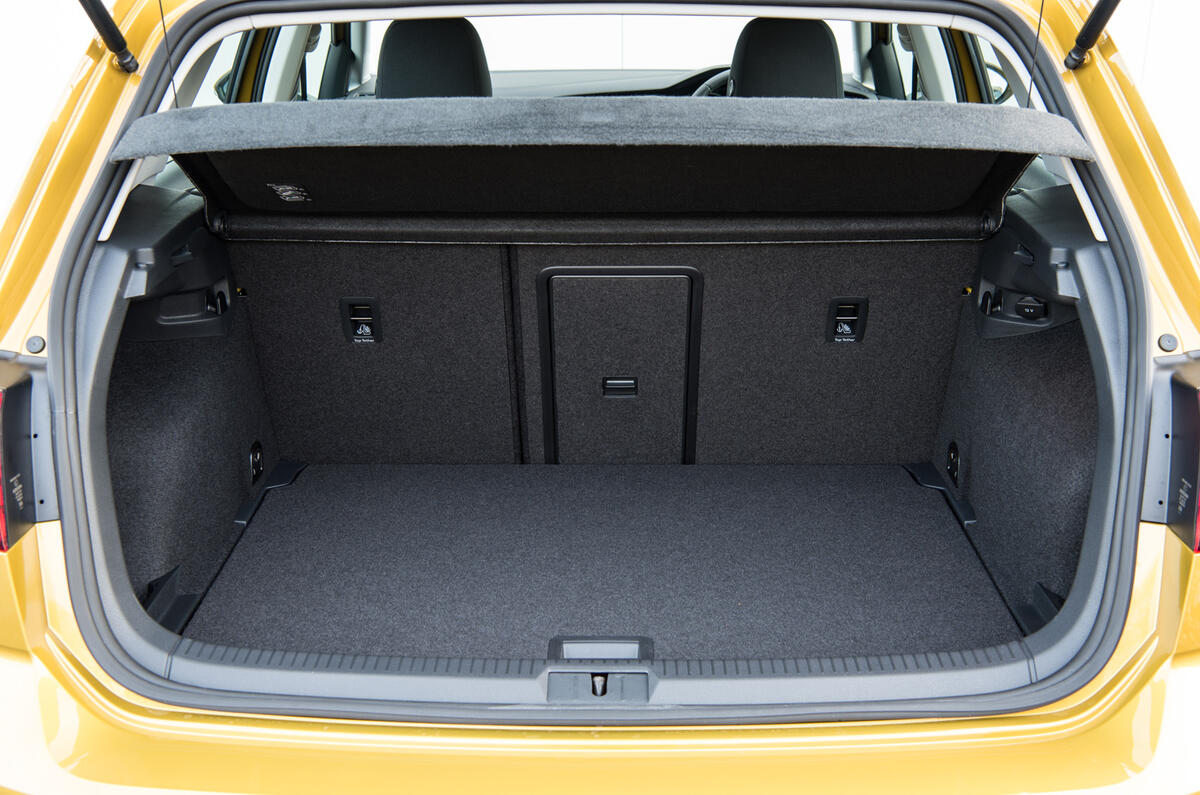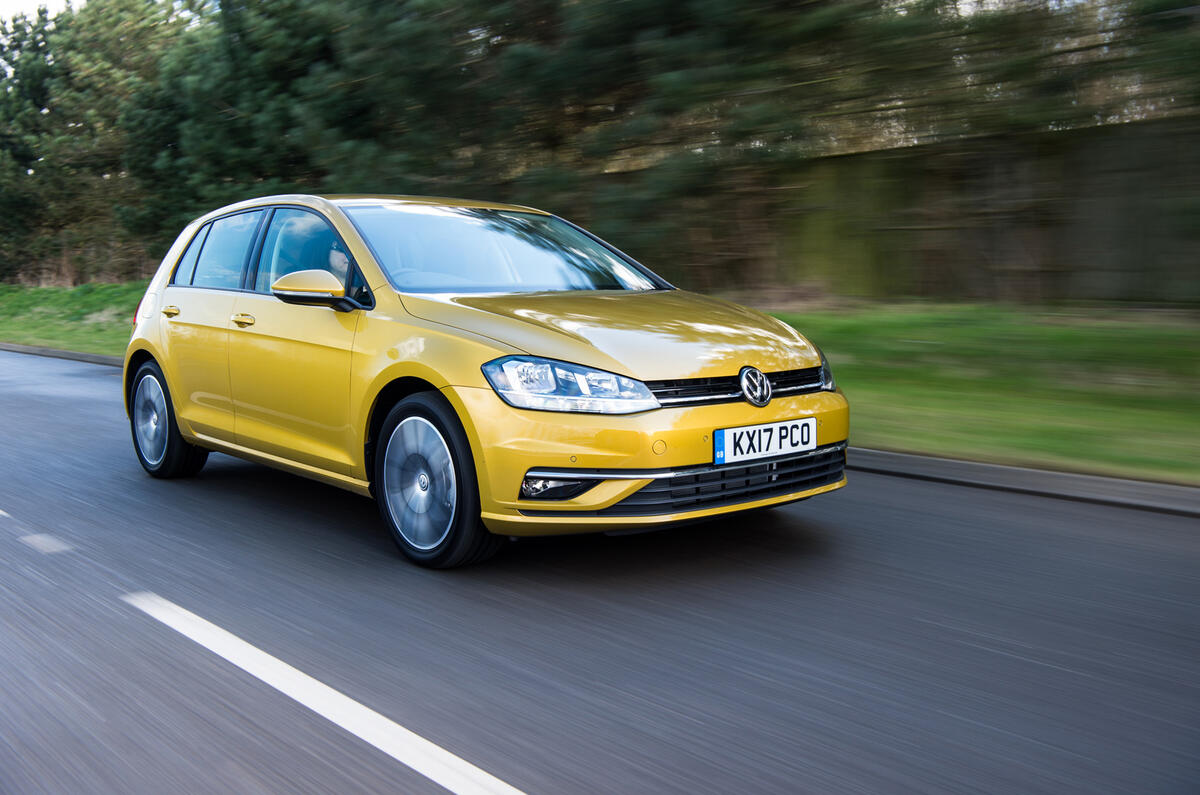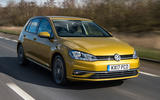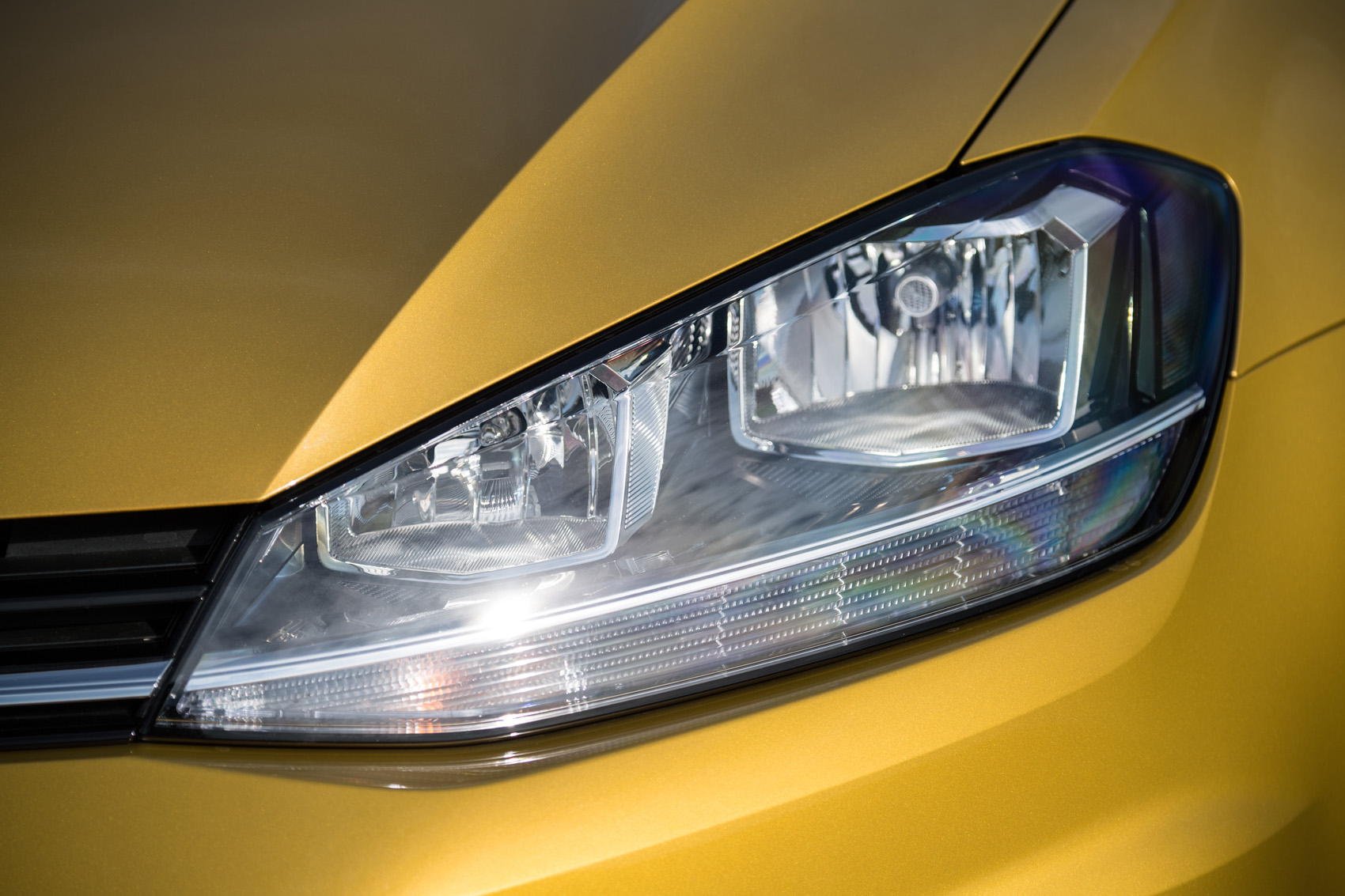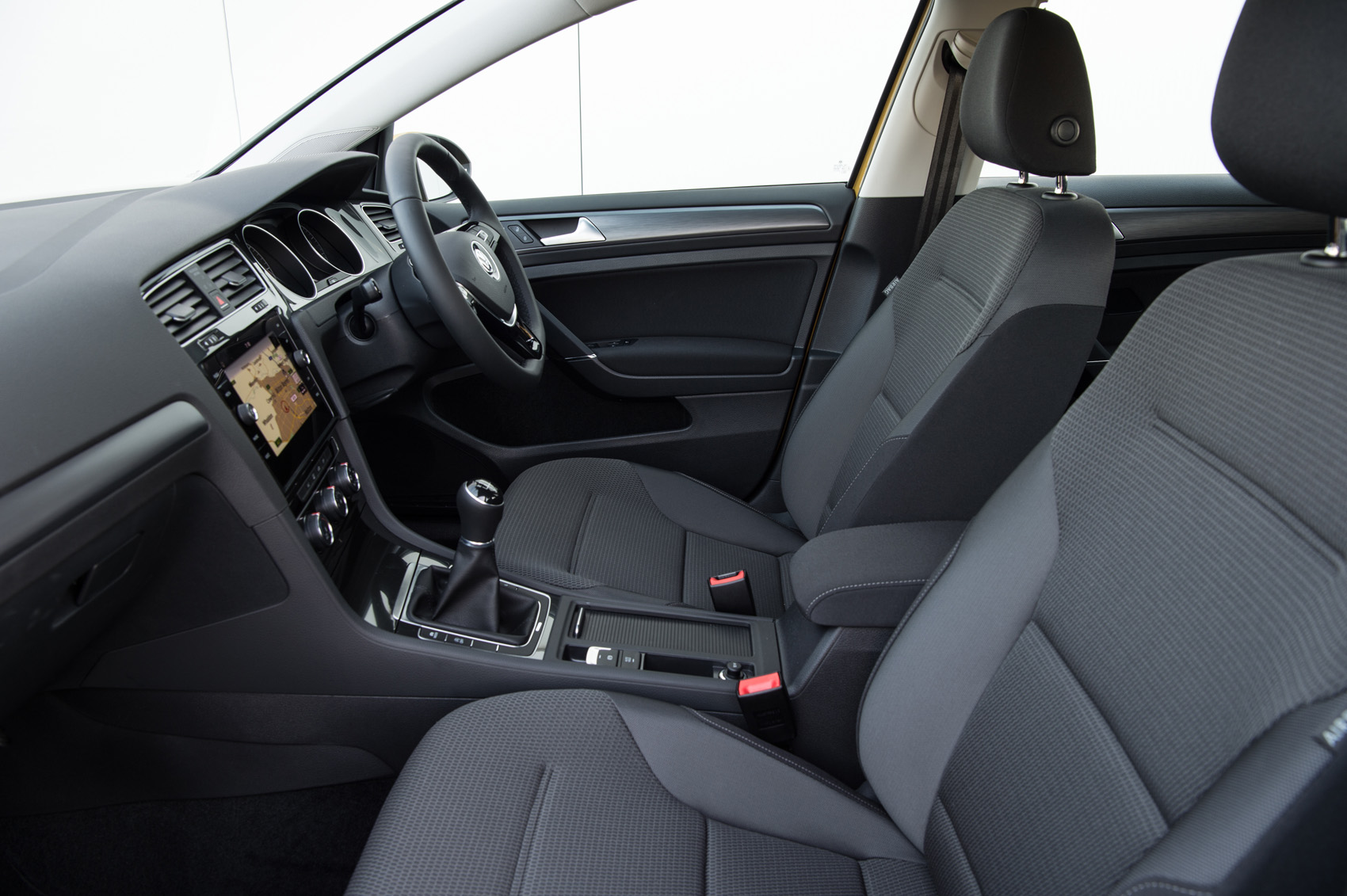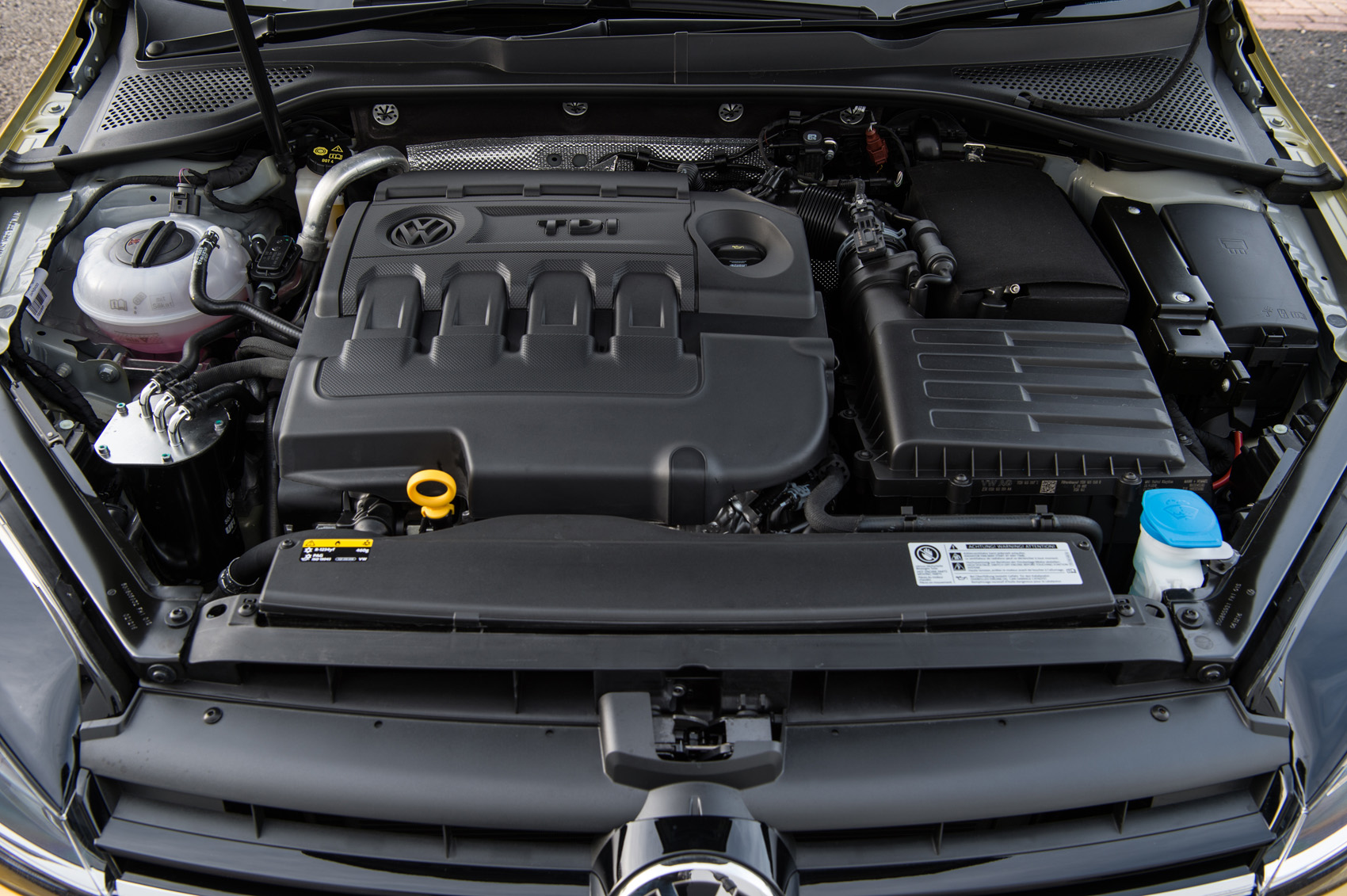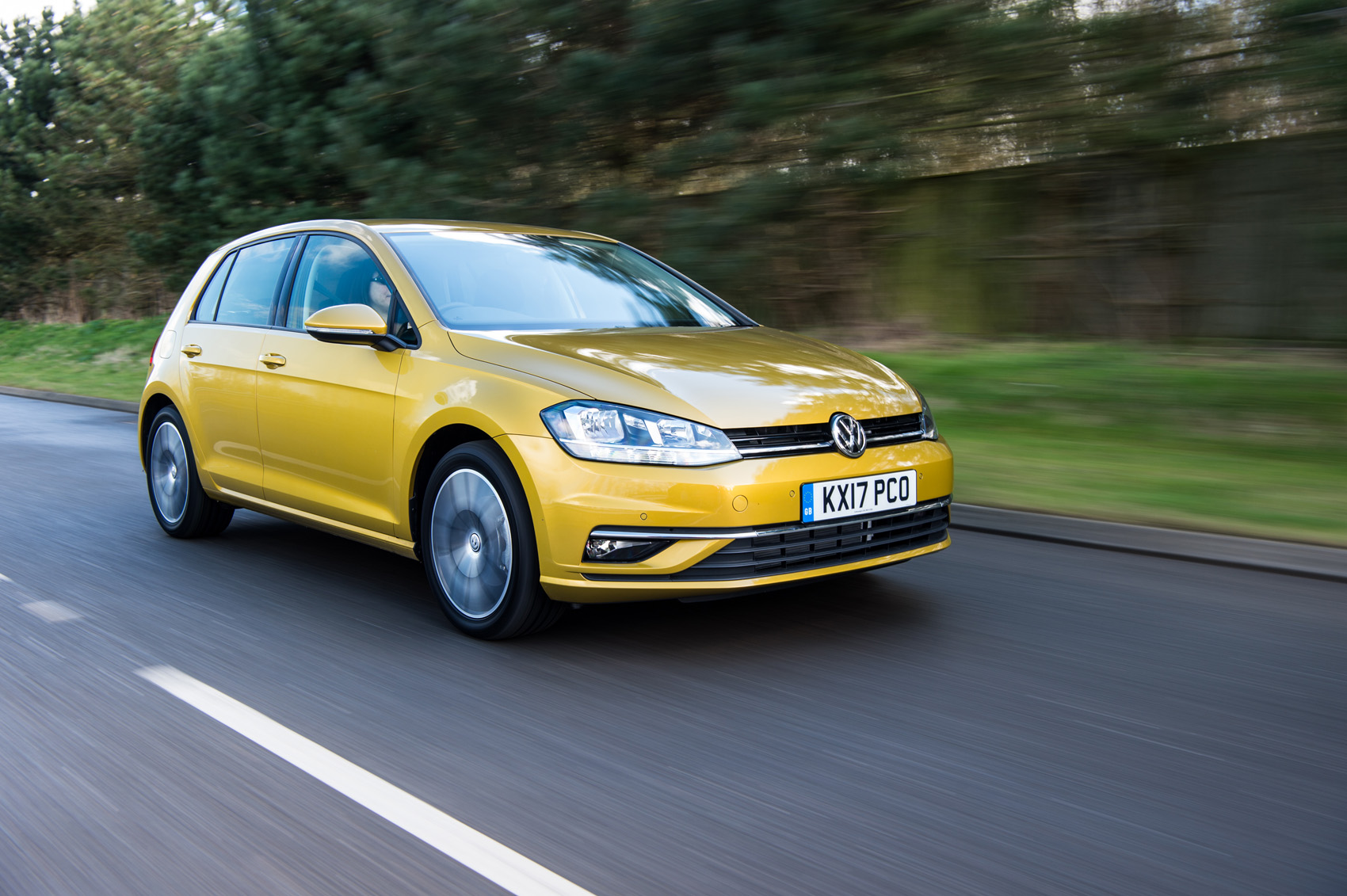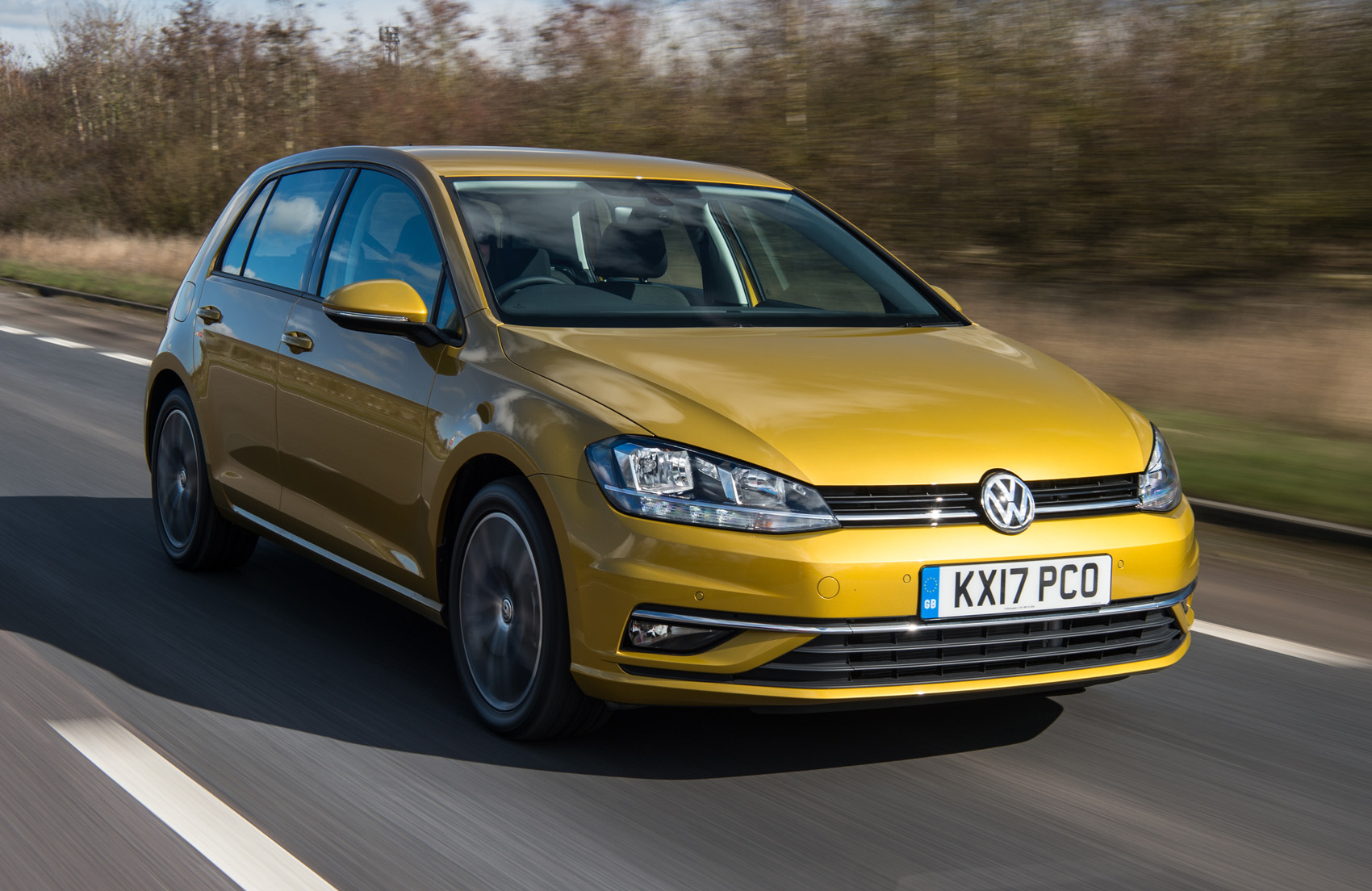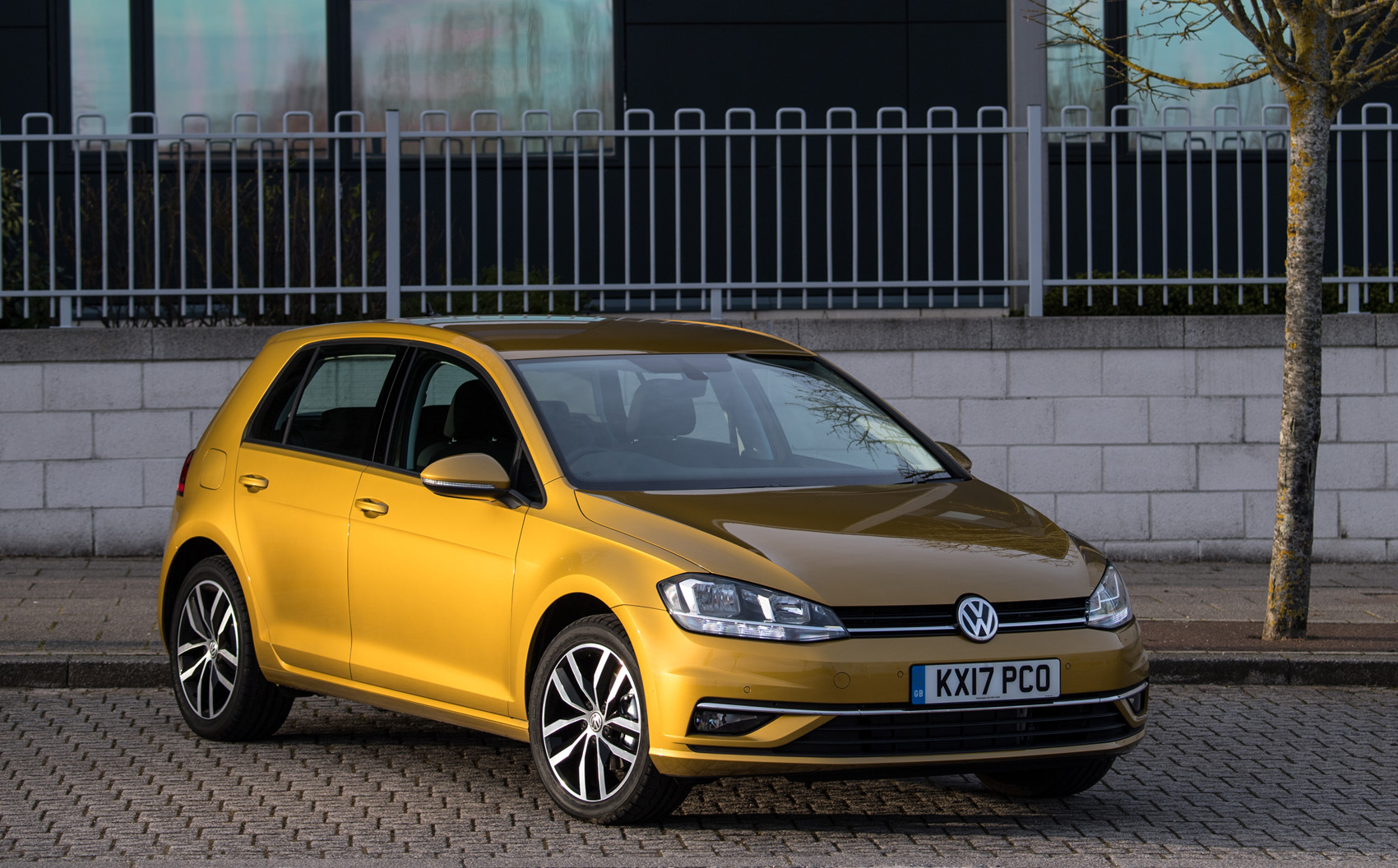High expectations here, and easily met. A sizeable constituent within Volkswagen’s customer base buy its cars (and the Golf specifically) because the interior quality and corresponding aesthetic hoist the cabin ambience out of the mainstream.
Remarkably, this is done without fawning too dramatically at the premium brands’ coat tails; instead, the just-so sweetness of the ergonomics and a design blueprint devoid of ostentation are entrusted to convey that all-important waft of understated class. In that respect, the Mk7 is a chip off the block.
VW insists that every element of this interior was redeveloped or redesigned over its predecessor's, but the innate conservatism of the surroundings means you’d struggle to put your finger on what exactly has changed without immediate reference to the Mk6 .
The centre console has been angled even more aggressively towards the driver, but it is probably the multimedia centre at its heart which is worthy of greater attention.
In a potent sign of the times, the trim levels come with more equipment than before, with the entry-level S comes equipped with LED day-running lights, automatic post-collision braking, city emergency braking and electronic locking differential as standard. Inside there is manual air conditioning, a cooled glovebox and Volkswagen's Composition infotainment system complete with 8.0in touchscreen display, DAB radio, and USB and Bluetooth connectivity.
SE cars come with more luxuries such as automatic wipers, lights and dimming rear-view mirror, adaptive cruise control, all round parking sensors, 16in alloy wheels and smartphone integration, while opting for the SE Nav sees the inclusion of sat nav, three-year subscription to VW's online services and an application to control the infotainment system via a tablet or smartphone.
GT-trimmed Golfs come fitted with 17in alloy wheels, sports suspension, LED foglights, tinted rear windows, front sports seats and interior ambient lighting, while opting for an R-Line model gives the Golf a more aggressive exterior and interior. The sportier GTD gets more sporting attire, LED headlights, dual-zone climate control, a 12.3in Active Info digital instrument cluster, heated front seats and 15mm lowered sports suspension, while fleet drivers will be pleased to see the GTD Blueline added to the range which sees emissions cut 6-7g/km by the fitment of 17in alloy wheels.
The halo cars within the Volkwagen Golf range get further performance enhancements over the 'warm' GTD, with the GTI getting its own alloys, suspension set-up and bodykit, while the GTI Performance gets more power, larger diameter brake discs and a mechanical slip differential.
The range-topping Golf R is a different beast to the rest with its own bodykit, badging and details, a retuned sports suspension set-up and 4Motion four-wheel drive system. The all-electric e-Golf gets some charging equipment, LED headlights, numerous online VW applications and a 9.2in touchscreen infotainment system built in giving updates on the status of the vehicle and its electric charge.
The Golf GTE gets bespoke editions over the standard car, including a unique bodykit, decals and details, blue brake calipers, LED headlights, 12.3in Active Info digital instrument cluster, and two charging cables, while the GTE Advance version gets sat nav, headlight washers, heated front seats, 18in alloy wheels, VW's connect services and exterior sound generator for when the GTE is electric mode.
By VW’s own benchmark, some of the old-fashioned switchgear is not quite as satisfying to spin or toggle as it might have been, but these are niggles rather than concerns.
Elsewhere, VW’s determination that the Golf must, once again, be made to swell has at least paid dividends inside. Rear legroom has grown by 15mm, despite the fact that the front seats have been moved 20mm back to help accommodate taller drivers.
The platform’s broader girth means that shoulder and elbowroom have increased by 30mm and 20mm respectively. The 28mm decrease in height has not perceptibly hindered headroom. The Golf is as spacious as a family could reasonably ask, and well in touch with its peers.
The Golf Estate offers the same levels of sensibleness and quality in the front, but with a 605-litre boot out the back.


